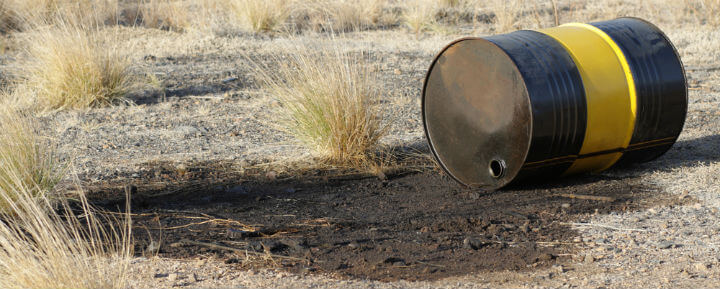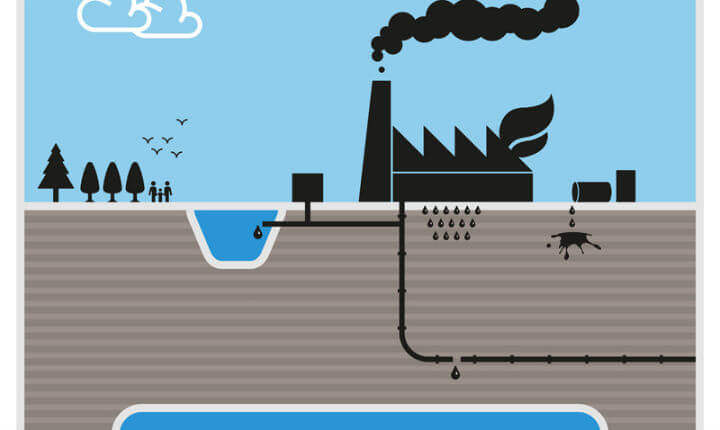How Does Groundwater Become Polluted? – Causes of Groundwater Contamination
Written by AOS Treatment Solutions on September 18, 2018

One of this planet’s most important resources is its groundwater. Groundwater is naturally filtered through the soil to sift out particulate matter, according to the U.S. Geological Survey.
Groundwater should look clean and clear, the way you would imagine a fast-moving stream to look. It is stored in massive natural aquifers. The USGS estimates that there is approximately 100 times more fresh water underground than in all the world’s rivers and lakes combined.
However, if the groundwater should become polluted or contaminated, it will lose its clarity and have consequences for people who drink it. More than 50% of the United States population depends on groundwater to drink and to irrigate their crops.
What Is Groundwater Pollution?
Groundwater pollution occurs when organic or inorganic compounds enter the water system in large quantities and are not filtered.
When groundwater is contaminated, diseases such as hepatitis and dysentery or another poisoning can occur in those who drink it. If someone drinks it for a long time, certain types of cancer may result from that exposure.
How does Groundwater Become Polluted?
How does groundwater become contaminated or polluted?
There are a few major sources of groundwater contamination, and we will cover four of them below. Most of these sources have safety procedures in place to keep groundwater as clean as possible. However, the EPA states that groundwater contamination is almost always the result of human activity.

So, what are the sources of groundwater pollution?
Landfills
Groundwater contamination from landfills is a common issue. Landfills are designed now with a safety feature that is supposed to keep any discarded hazardous materials from seeping into the soil. If those safety features fail, it can have a serious impact on the surrounding groundwater.
This happens most often after severe weather events, such as hurricanes, tornadoes, and earthquakes. It can also happen if the safety equipment is allowed to age beyond the point of repair.
Sewage Treatment Failures
Sewage treatment plants remove most of the pollutants from the water that they treat, but sometimes things slip through. When their safety features fail, wastewater feeds directly into the soil to join the groundwater nearby.
Primary and secondary wastewater treatment is incredibly important to ensure that water reentering the environment is safe for the community. Visit AOS today to learn how our municipal wastewater treatment systems can help keep your locality healthy.
Farms
Farms or areas that have large numbers of animals roaming free can be a problem for the groundwater. If animal waste is not cleaned up, the untreated waste can pollute the nearby groundwater the same way it would at a landfill or a sewage treatment plant.
Arsenic
Arsenic occurs naturally as a part of some minerals. If there is a high concentration of arsenic in an aquifer, it has the potential to contaminate groundwater and severely harm the human population that relies on it. This type of aquifer contamination is a common problem in Pakistan, according to Science Magazine, where it has threatened up to 60 million people.
Arsenic poisoning can cause developmental delays, skin lesions, cancer, and cardiovascular diseases.
What does Groundwater Contamination do?
The effects of groundwater contamination are far-reaching. There are five different ways that scientists measure the physical characteristics of groundwater – turbidity, color, pH, odor, and taste.
Depending on what contaminates the groundwater, it will change in different ways, and cause different problems.
AOS Treatment Solutions offers water analysis services to meticulously analyze your water and provide water treatment solutions to improve its safety for your community.
Contact AOS today to make sure that your municipality is keeping a close eye on your groundwater

